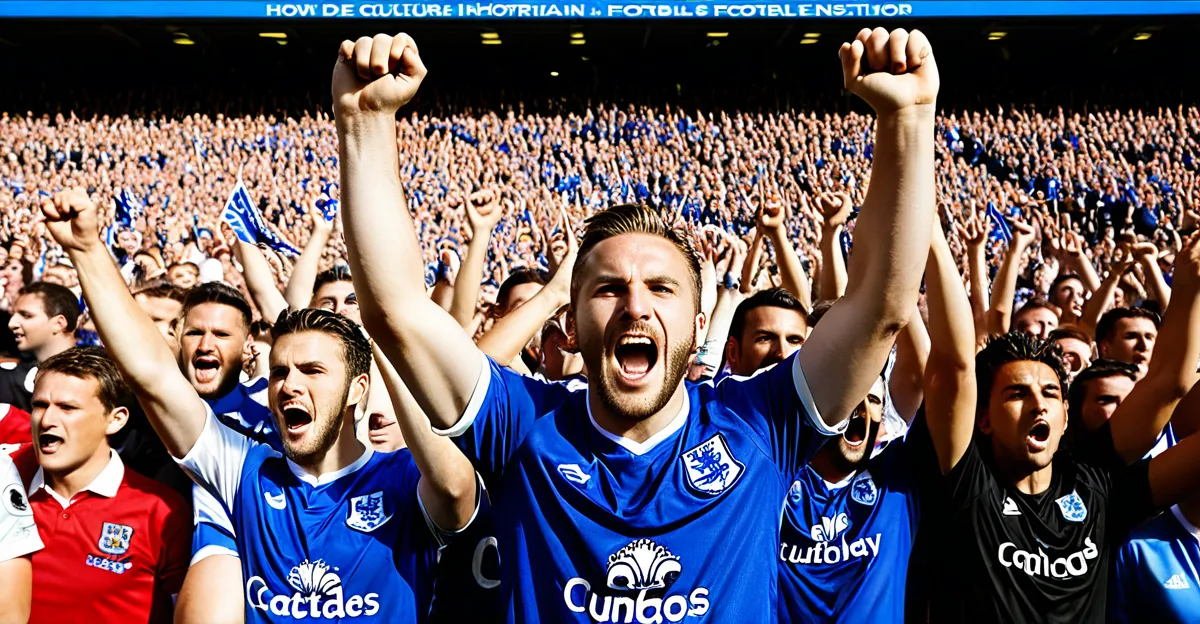The Connection Between Cultural Identity and Football Fandom
Cultural identity in the context of UK football fandom reflects how individuals see themselves through their shared traditions, values, and history linked to their local clubs. This sense of belonging shapes fan passion deeply, turning football into more than just a sport—it becomes a vital expression of communal pride.
Social identity theory helps explain this collective behaviour. Fans derive part of their self-concept from group membership, leading to strong emotional investments and loyalty. When fans unite behind their team, they reinforce their cultural identity, distinguishing themselves from rival groups and forging solid social bonds.
Also read : How Can Historical Football Matches Shape Future Strategies in UK Sport?
Cultural influences shaping football enthusiasm in the UK are also notable. Regional dialects, historic rivalries, and working-class roots all contribute to unique fan cultures. These elements fuel intense support, creating vibrant atmospheres in stadiums and beyond. Understanding these layers helps reveal why football remains a powerful cultural force and a key part of many fans’ identities.
By recognizing the interplay of cultural identity and UK football fandom through social identity theory, one appreciates how fan passion is both a personal and collective experience, embedded deeply in community life.
Additional reading : How Did the Latest Premier League Transfer Impact Team Dynamics?
Regional Identity and Local Loyalty in UK Football
Regional identity plays a pivotal role in shaping supporter loyalty across UK football teams. Fans often have deep connections to their club through shared geographic roots and longstanding community traditions. This local pride is not just about where the team is based; it represents a cultural bond that unites supporters through generations.
The distinct regional identity of clubs fuels passionate local rivalries that carry significant historical weight. Matches between neighboring teams are much more than fixtures; they are expressions of community pride and historic contest. These rivalries amplify the intensity of fandom and reinforce loyalty, as supporters see their allegiance as an extension of their local identity.
Moreover, this embedded local pride influences how fans interact with their clubs. Loyalty often survives through successes and setbacks alike, driven by a sense of belonging rather than just performance. For instance, even supporters of lower-tier teams exhibit unwavering commitment because their allegiance symbolizes more than just sport—it reflects their heritage. Thus, UK football teams thrive on a foundation where regional identity and supporter loyalty are inseparable forces powering the game’s enduring appeal.
Ethnicity, Diversity, and Inclusion Among UK Football Fans
Diverse ethnic backgrounds greatly enrich the experience of UK football fans. The sport serves as a cultural melting pot where supporters from various communities come together, creating an atmosphere vibrant with different traditions and perspectives. This diversity fosters a sense of belonging and collective passion that transcends individual differences.
Many UK football clubs boast multicultural supporters who bring unique chants, food, and customs to matchdays. For example, clubs in cities like London and Manchester reflect local ethnic diversity, where Asian, Black, and other minority groups significantly contribute to the fan culture. This inclusive fandom strengthens community ties, making games more than just sporting events.
Initiatives promoting diversity in football have gained momentum, such as campaigns encouraging respectful behavior and anti-racism. Clubs organize fan forums that celebrate ethnic identities, helping break down barriers and promote acceptance. These efforts not only improve the atmosphere at stadiums but also highlight football’s potential as a powerful agent for social cohesion and inclusion among all supporters.
Football Rituals and Cultural Traditions
Short yet vibrant threads weaving fans and football clubs together
Football rituals and cultural traditions stand as pillars of matchday culture in the UK, deeply embedded in fan behaviour. These sporting rituals, such as arriving early at the stadium to share pre-match drinks or meeting at favourite local pubs, are not merely habits but acts that cultivate community bonds.
Local customs heavily shape these experiences. For example, fans in northern cities often exhibit raucous, boisterous celebrations, while southern supporters might blend more family-oriented activities into their day. Such regional nuances enrich the tapestry of fan behaviour, making every stadium distinct.
Songs and chants hold profound significance. Classics like “You’ll Never Walk Alone” serve not just as entertainment but as vocal expressions of loyalty and identity. Visual displays, including coordinated banners and scarves, transform stands into arenas of collective pride, visibly uniting supporters.
These football traditions elevate the sporting event beyond a game, embedding it into daily life and heritage. Understanding these elements offers a window into how fans transform football into a shared cultural experience that transcends simple fandom.
Case Studies: Cultural Identity and Iconic UK Football Clubs
Examining football clubs like Liverpool, Celtic, and Newcastle United reveals a rich tapestry of community influence and supporter identity. Each club serves as a cultural beacon, reflecting its locality’s history and values. Liverpool FC’s fan culture, for example, radiates a deep sense of pride connected to the city’s maritime past and working-class roots. The anthem “You’ll Never Walk Alone” is more than a song; it symbolizes solidarity and collective resilience.
Celtic embodies Scottish-Irish identity, with supporter movements often tied to religious and political stances rooted in their community. This connection influences how fans express pride and loyalty, creating a deeply intertwined relationship between cultural heritage and sporting passion.
Newcastle United fans, known for their passionate and vocal support, channel a strong sense of regional identity. The club stands as a point of unity for the people of Northeast England, where football isn’t just a sport but a crucial part of local life and pride.
These case studies highlight how football clubs can transcend their athletic roles, becoming powerful symbols of cultural identity that galvanize entire communities and foster enduring supporter loyalty.
The Role of Fan Clubs and Supporter Groups
Fan clubs and supporter groups form around a shared passion, creating social communities that deeply influence football identity. These groups often organize themselves through common interests, local ties, or historical connections to the club, shaping a collective identity that goes beyond just watching matches. Their formation is rooted in the desire to belong to a community where football is a central cultural pillar.
These supporter groups play a crucial role in strengthening cultural connections among fans. They foster a sense of camaraderie and shared experience, whether through chants, matchday rituals, or community events. This collective spirit reinforces the emotional bond between fans and their club, helping to preserve traditions and local heritage linked to football identity.
Moreover, fan clubs often exert considerable influence on club policies and local communities. Their collective voice can sway decisions made by club management, reflecting the priorities and concerns of the supporter base. By organizing initiatives and outreach programs, these groups also contribute positively to the wider community, enhancing the club’s social impact beyond the stadium. This dynamic illustrates how fan clubs and supporter groups are pivotal in shaping both the cultural and operational aspects of football life.

